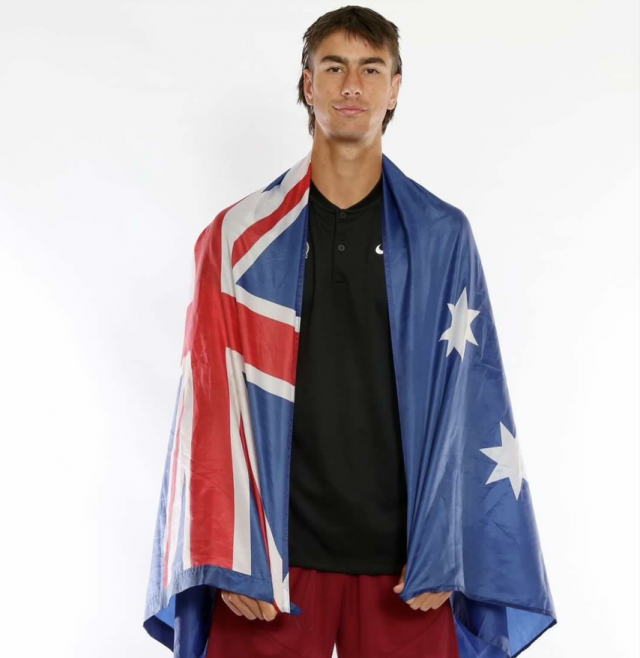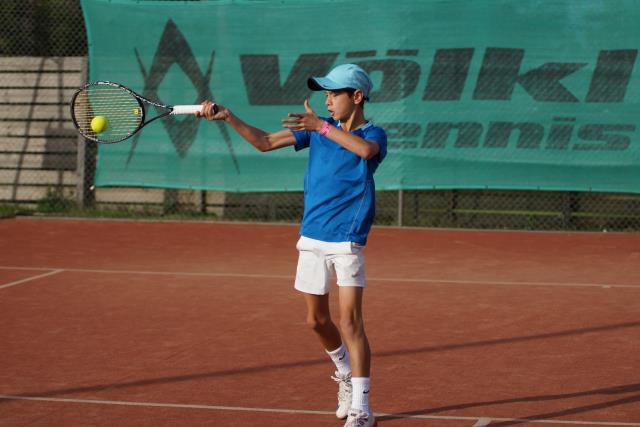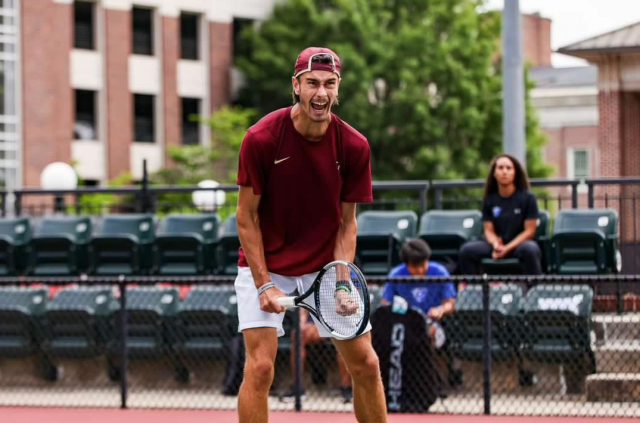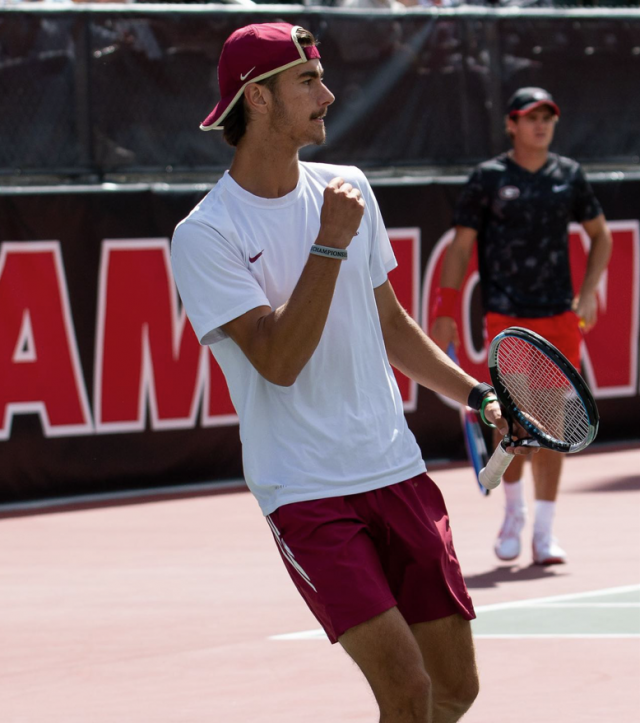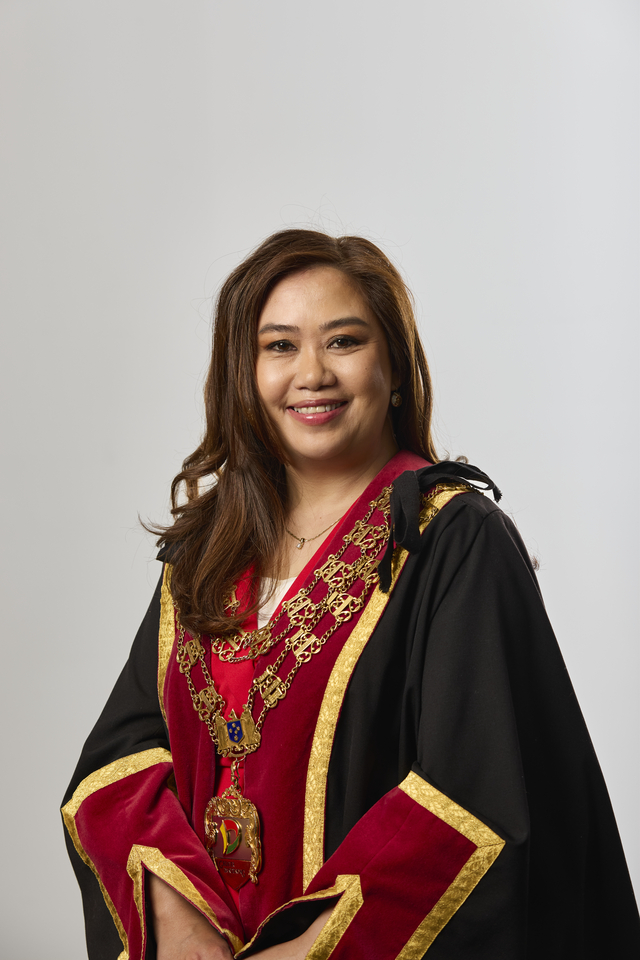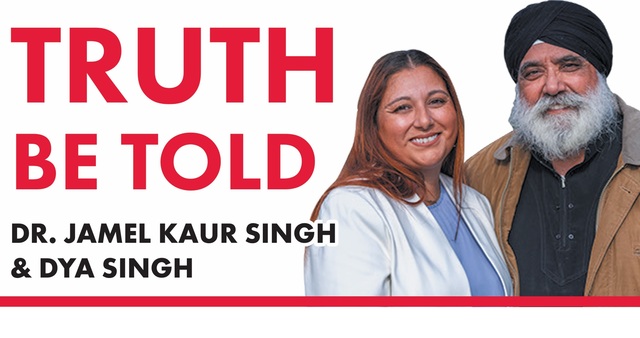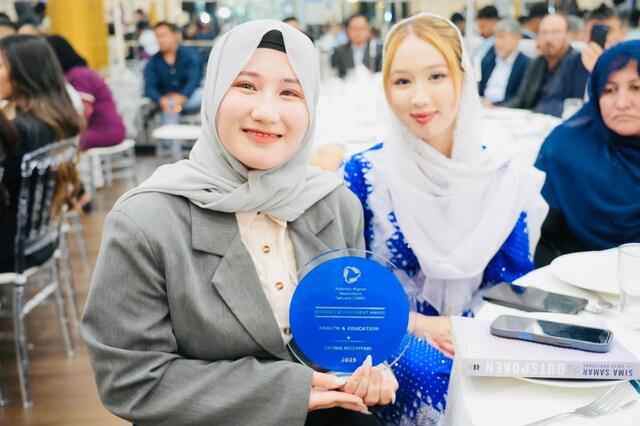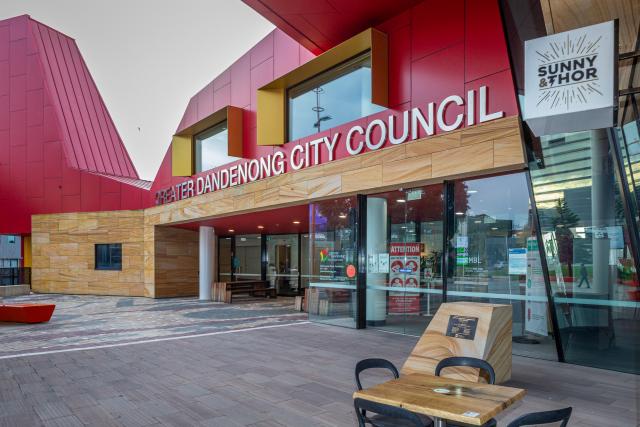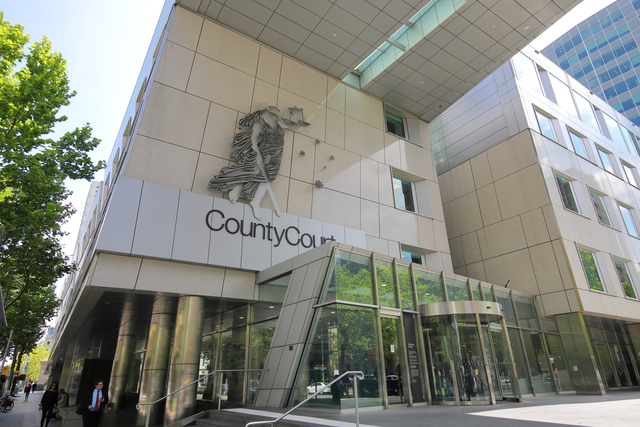Deep into a toasty Melbourne night last week, New South Wales 21-year-old Rinky Hijikata was locked in a tense battle in the first round of his Australian Open campaign.
Down two sets to love against a top-100 ranked German, the Aussie wildcard appeared to be a certain first round casualty at his home slam debut.
But in front of wild Aussie fans, Hijikata reeled off the next three sets to progress to the next round and set up a clash with World Number 4 Stefanos Tsitsipas.
Hijikata lost that one comfortably, but got the experience of playing in prime time on Rod Laver Arena against one of the best in the world after walking an ‘off-broadway’ path to the top.
For one Beaconsfield and Fountain Gate junior, Hijikata’s journey mirrors the route he is looking to take.
Narre Warren resident Alex Bulte is currently in his sophomore year at Florida State University (FSU) playing college tennis and majoring in sports management.
Just two years ago, Hijikata was playing the same level of tennis at University of North Carolina at Chapel Hill – it was his final step before going onto the second tier ITF and ATP challenger tours, and now, playing at grand slams.
“He was one of my role models,” Bulte said of Hijikata.
“We have travelled together and been roommates so it is surreal seeing him do so well.
“I actually sent him a message saying how proud I was of him and he was joking around saying how electric it was out there.
“It can happen like that,” Bulte added, clicking his fingers.
“You’ve just got to stick with it.”
As well as Hijikata, American fourth-rounder Ben Shelton is another poster boy for the rise of college as a viable path for professional tennis aspirants.
A number-one ranked Australian junior – as high as 101 in the world juniors – and Victorian National Academy player, Bulte has always been a talent destined to give the ATP tour a shake.
Colleges have had their eye on him since he was 15, appeased by the multiple ways he has to win matches: he can grind; interrupt his opponents’ rhythm by serve-and-volleying; and pressuring from the baseline, pouncing on the loose ball.
Like many Aussie kids, he grew up with sport as his second language, also playing footy at Beaconsfield and Devon Meadows as a junior.
He loved the camaraderie at the Tigers and Panthers, something absent from tennis.
Insert the college idea.
“The team has such a good vibe, everyone loves being around each other, which you probably wouldn’t get in an individual tennis tournament where you only have one happy winner at the end,” Bulte said.
“Everyone’s just down in the dumps all the time which can become a toxic environment travelling for 10-12 weeks on tour, you’re not going to win every week obviously, so it can get a bit depressing.”
While the mainstream media hones in on the professional tour where players often have a full entourage, and racquets are sometimes treated with less respect than silver coins, life for most players is far removed from that glamorous utopia.
For most, a more realistic picture is grinding lower-level tournaments in faraway places without a sponsor or coach, and playing with the mindset that wins are necessary moreso to fund another week on tour than to increase a ranking.
But at college, decisions are made in the best interests of his tennis.
Coaches, nutrition experts, recovery centres and equipment are all covered to have players at peak performance on the court.
Bulte automatically has nine college teammates to train with at a high-intensity, rather than scrambling to have a hit with someone on tour between matches, and having no-one to hold him accountable if he has a poor session.
“It’s more mental than anything,” said Florida State University assistant coach Chris Doerr who has worked with Joe Salisbury, Rajeev Ram, and Bob and Mike Bryan, who have all been World Number 1 doubles players.
“He can be tough on himself sometimes which is a great quality to have in practice, but in a match he has to be more positive and supportive on what he is doing and then it is going to come down to his self-belief.
“He is so quick, so talented, once he starts to believe in himself, he’ll perform at each level he comes at.”
Asked how far Bulte is off the next level, Doerr said: “I think if you talk about top 500 (in the) ATP (singles rankings), he’s maybe 12 months away, having success on the ITF pro tour, he’s not far away at all, I think at any moment it could click.”
Tonsillitis, an ankle sprain and finger injury punctuated Bulte’s first year in Tallahassee but he’s finally getting some continuity in his body and delivering on-court.
During his time at FSU, Bulte has increased his power and come into his own as a player that can finish points off.
Bulte currently has a 14-14 win-loss record in singles, including winning five of his last seven, and a 24-12 record in doubles.
The 21-year-old has seen both sides of the coin, touring as a junior before he got a taste of the team culture at college level.
(As a junior), we would go on six-week tours and those first couple of weeks were crucial for me because you lose your first two weeks, first round, and you think ‘is this going to be a massive waste?,” he said.
“’What if I don’t win a match for this whole tour’ – the doubts start to creep in.
“Luckily I didn’t always have that bad a mindset when I played, but it’s a snowball effect which is waiting to happen when you have that mindset of results over process.
“Everything just comes down when you’re in that mindset.
“I’ve been through those times where that’s all that is on my mind and it’s not good.
“I’m sitting in my bed going ‘why is my (universal tennis ranking) not higher, why am I not beating this guy on that day’ and stuff like that, whereas here I can just focus on day to day routines and getting my studies right and having the back up plans which makes me feel good about myself.
“That was a big thing of college, having the balance in life and creating healthy habits.”
COLLEGE TENNIS EXPLAINER
- Begins in January and runs through until May. Bulte’s Florida State University is currently undefeated from four fixtures this season.
- Each fixture is best of seven.
- The fixture kicks off with three separate doubles matches – each match is one set, with the team that wins at least two of the three matches awarded the doubles point.
- There is a greater emphasis on doubles tennis on the college scene than in regular systems, with the tramlines being in play for about one third of practices. This suits Bulte who is comfortable at the net and returns well.
- The singles matches are best of three sets with each individual contest being worth one point
- First to four points in singles and doubles wins the game – sudden death deuce.
- During fall, players compete in tournaments of their choosing as the tennis is much more individual-oriented.
- Players play to improve their Universal Tennis Rating (UTR) which reflects a player’s current skill-level based on their most recent 30 head-to-head performances in a 12-month period.

